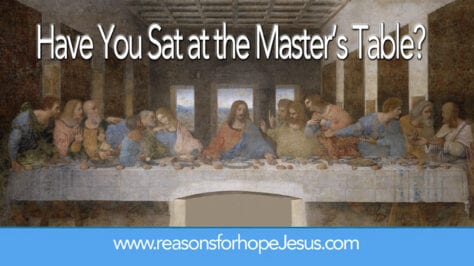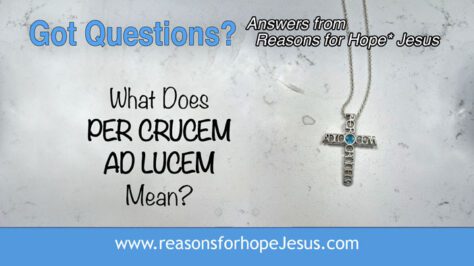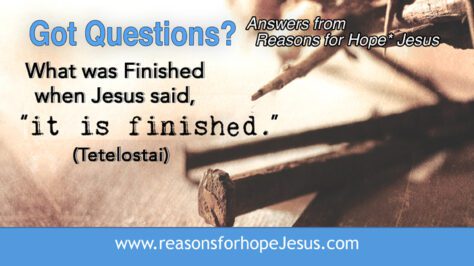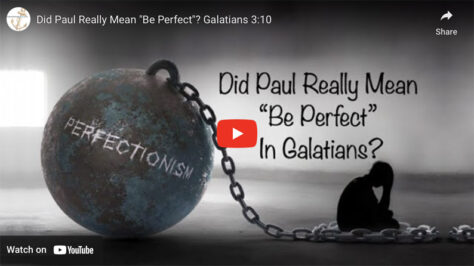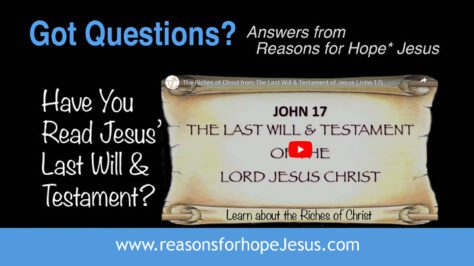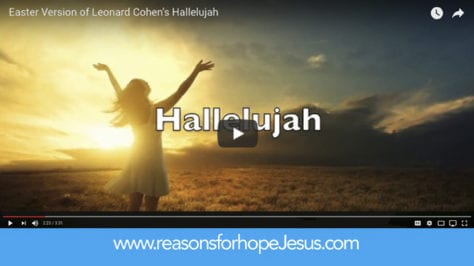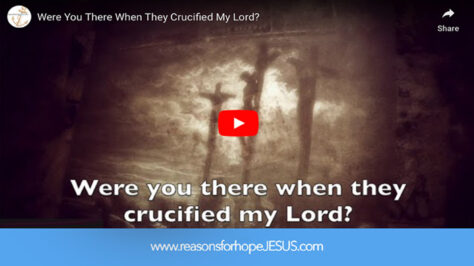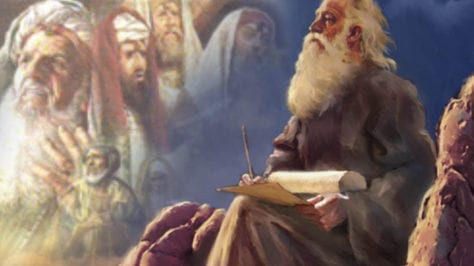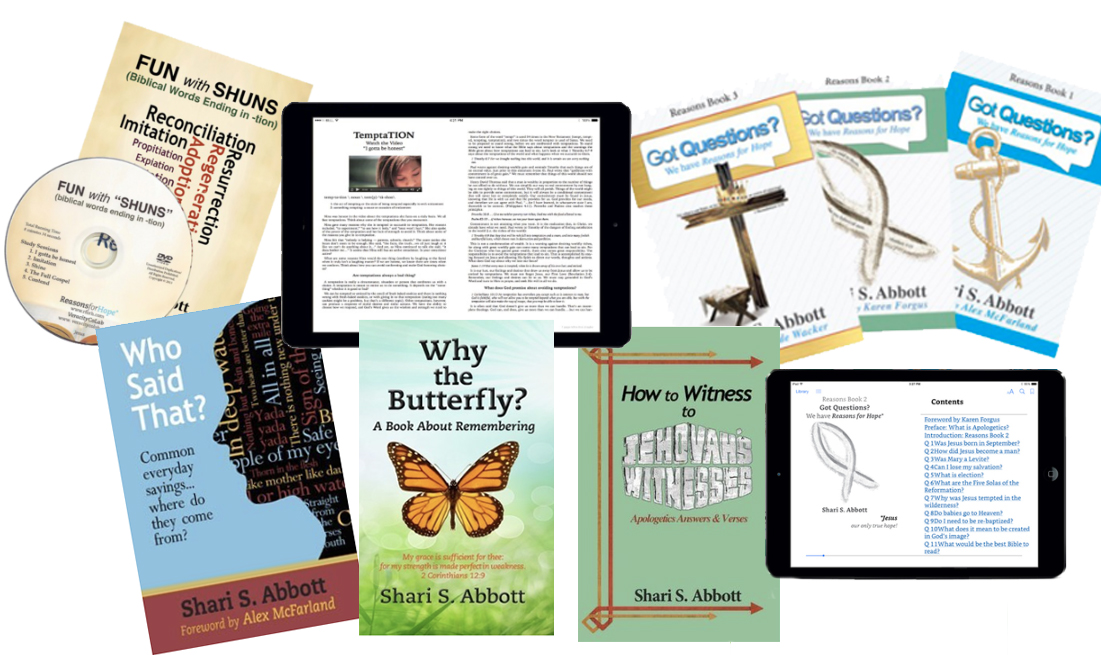
John Winthrop (1588-1649) was a devout Puritan, but not a minister as many suppose. He was a lawyer and in 1629, he was made governor of the Massachusetts Bay Company. He was tasked with leading Puritans to New England to establish settlements along the shores of Massachusetts Bay.
In 1630, they voyaged to New England. Aboard the fleet’s flagship, Arbella, Winthrop wrote and delivered a sermon of his vision for their settlements.
“A Model of Christian Charity”
Also known as “City on a Hill,” Winthrop’s sermon conveyed guidelines for establishing the community, organizing and governing the community, and how the Christians should live in charity (Note: at that time, the word “charity” was synonymous with “love.”)
Winthrop declared that establishing the community as a model of Christian love was necessary for harmony among them and would honor God and show them to be a light to the world.
Because the settlers had come from many different regions, Winthrop spoke of the importance of unity in diversity to create a community “knit more nearly together in the bonds of brotherly affection.”
Winthrop also urged generosity among the people and an understanding of the importance of meeting the needs of one’s neighbor so the community would flourish. They were fleeing royal persecution because of religious beliefs, and their success would show the world that their faith was true:
“We shall find that the God of Israel is among us…For we must consider that we shall be as a city upon a hill. The eyes of all people are upon us.”
A Model of Christian Charity 1630 by John Winthrop
[Readers version: All emphasis and formatting added; minor editing for readability.]
God Almighty, in his most holy and wise providence, hath so disposed of the condition of mankind. As in all times some must be rich, some poor, some high and eminent in power and dignity, others mean and in subjection.
A Reason Hereof
First, to hold conformity with the rest of his works, being delighted to show forth…
- the glory of his wisdom in the variety and difference of the creatures.
- the glory of his power, in ordering all these differences for the preservation and good of the whole.
- the glory of his greatness. As it is the glory of princes to have many officers, this great kind will have many stewards, counting himself more honored in dispensing his gifts to man by man than if he did it by his own hands.
Secondly, that he might have the more occasion to manifest the work of His spirit:
- First upon the wicked in moderating and restraining them, so that the rich and mighty should not eat up the poor, nor the poor and despised rise up against their superiors and shake off their yoke.
- Secondly, in the regenerate, in exercising his graces in them, as in the great ones, their love, mercy, gentleness, temperance, etc.; in the poor and inferior sort, their faith, patience, obedience, etc.
Thirdly, that every man might need others.
From hence, they might be all knit more nearly together in the bonds of brotherly affection. From hence, it appears plainly that no man is made more honorable than another or more wealthy, etc., out of any particular and singular respect to himself, but for the glory of his creator and the common good of the creature, man.
There are two rules whereby we are to walk one towards another: justice and mercy.
These are always distinguished in their act and their object. Yet may they both concur in the same subject in each respect. Sometimes, there may be an occasion of showing mercy to a rich man in some sudden danger of distress and also doing mere justice to a poor man in regard to some particular contract, etc.
There is likewise a double law by which we are regulated in our conversations one towards another in both the former respects: the law of nature and the law of grace, or the moral law or the law of the gospel. To omit the rule of justice, as not properly belonging to this purpose otherwise, it may fall into consideration in some particular cases. By the first of these laws, man as he was enabled so withal [is] commanded to love his neighbor as himself.
Upon this ground stands all the precepts of the moral law, which concerns our dealings with men. To apply this to the works of mercy, this law requires two things:
- First, every man affords his help to another in every want to distress.
- Secondly, he performed this out of the same affection which makes him careful of his goods, according to that of our Savior.
Matthew: “Whatsoever ye would that men should do to you.” This was practiced by Abraham and Lot in entertaining the angels and the old man of Gibeah.
Law of Grace and Gospel
The law of grace or the gospel hath some difference from the former, as in these respects.
- First, the law of nature was given to man in the estate of innocency; this of the gospel in the estate of regeneracy.
- Secondly, the former propounds one man to another, as the same flesh and image of God. This as a brother in Christ also, and in the communion of the same spirit, and so teaches us to put a difference between Christians and others. Do good to all, especially to the household of faith [Gal 6:10]. Upon this ground, the Israelites were to put a difference between the brethren of such as were strangers though not of Canaanites.
- Thirdly, the law of nature could give no rules for dealing with enemies, for all are considered as friends in the state of innocence. But the Gospel commands love to an enemy. Proof: If thine enemy hunger, feed him; love your enemies, do good to them that hate you, Matthew 5:44.
This law of the gospel propounds likewise a difference of seasons and occasions. There is a time when a Christian must sell all and give to the poor, as they did in the Apostles’ times. There is a time also when a Christian (though they give not all yet) must give beyond their ability, as they of Macedonia (II Corinthians 11:9). Likewise, a community of perils calls for extraordinary liberality, and so doth community in some special service for the church. Lastly, when there is no other means whereby our Christian brother may be relieved in his distress, we must help him beyond our ability rather than tempt God in putting him upon help by miraculous or extraordinary means.
This duty of mercy is exercised in the kinds, giving, lending, and forgiving—
Question: What rule shall a man observe in giving in respect of the measure?
Answer: If the time and occasion be ordinary he is to give out of his abundance. Let him lay aside as God hath blessed him. If the time and occasion be extraordinary, he must be ruled by them. Taking this withal, that then a man cannot likely do too much, especially if he may leave himself and his family under probably means of comfortable subsistence.
Question: What rule must we observe in lending?
Answer: Thou must observe whether thy brother hath present, or probably, or possible means of repaying thee. If there are none, thou must give him according to his necessity rather than lend him as he requires. If he hath present means of repaying thee, thou art to look at him not as an act of mercy, but by way of commerce, wherein thou art to walk by the rule of justice. But if his means of repaying thee be only probable or possible, then is he an object of thy mercy. Thou must lend him, though there be danger of losing it, Deuteronomy 15:7, If any of thy brethren be poor, etc., thou shalt lend him sufficient…
Question: What rule must we observe in forgiving?
Answer: Whether thou didst lend by way of commerce or in mercy, if he has nothing to pay thee, [thou] must forgive (except in cause where thou hast a surety or a lawful pledge).
Deuteronomy 15:2. Every seventh year the creditor was to quit that which he lent to his brother if he were poor, as appears [in] verse 8, Save when there shall be no poor with thee. In all these and like cases, Christ was the general rule,
Matthew 7:22, Whatsoever ye would that men should do to you, do ye the same to them also…
Having already set forth the practice of mercy according to the rule of God’s law, it will be useful to lay open the grounds of it also.
The definition that scripture gives us of love is this: “Love is the bond of perfection.”
First, it is a bond or ligament. Secondly, it makes the work perfect. There is no body but consists of parts. And that which knits these parts together gives the body its perfection because it makes each part so contiguous to others. Thereby, they do mutually participate with each other, both in strength and infirmity, in pleasure and pain. For instance, in the most perfect of bodies, Christ and his church make one body. The several parts of this body, considered apart before they were united, were as disproportionate and as much disordering as son many contrary qualities or elements, but when Christ comes and by His spirit and love knits all these parts to Himself and to others, it is become the most perfect and best-proportioned body in the world…
From former considerations arise these conclusions:
- First, this love among Christians is a real thing, not an imaginary one.
- Secondly, this love is as necessary to the being of the body of Christ as the sinews and other ligaments of a natural body are to the being of that body.
- Thirdly, this love is a divine, spiritual nature: free, active, strong, courageous, permanent, and undervaluing all things beneath its proper object. And of all the graces, this makes us nearer to resembling the virtues of our heavenly father.
- Fourthly, it rests in the love and welfare of its beloved. For the full and certain knowledge of these truths concerning the nature, use, and excellency of this grace, the Holy Ghost hath left recorded. 1 Corinthians 13, may give satisfaction, which is needful for every true member of this lovely body of Lord Jesus, to work upon their hearts by prayer, meditation, and continual exercise at least of the special [influence] of this grace, till Christ be formed in them and they in him, all in each other knit together by this bond of love.
It rests now to apply this discourse by the present design, which gave the occasion to write it.
Herein are four things to be propounded:
First, the persons; second, the work; third, the end; fourth, the means.
First, for the persons.
We are a company professing ourselves as fellow members of Christ. In this respect, only though we were absent from each other many miles and had our employments as far distant, yet we ought to account ourselves knit together by this bond of love and live in the exercise of it if we would have the comfort of our being in Christ. This was notorious in the practice of the Christians in former times; as is testified of the Waldenses, from the mouth of one of the adversaries Aeneas Sylvius, “mutuo [ament] pene antequam norunt,” they use to love any of their own religion even before they were acquainted with them.
Second, for the work we have in hand.
It is by mutual consent, through a special overvaluing providence and a more than ordinary approbation of the churches of Christ, to seek out a place of cohabitation and consortship under a due form of government, both civil and ecclesiastical. In such cases as this, the care of the public must oversway all private respects, by which not only conscience by mere civil policy doth bind us, for it is a true rule that particular estates cannot exist in the ruin of the public.
Thirdly, the end is to improve our lives…
to do more service to the Lord; the comfort and increase of the body of Christ of whom we are members; that ourselves and posterity may be better-preserved from the common corruptions of this evil world, to serve the Lord and work out our salvation under the power and purity of His holy ordinances.
Fourth, for the means whereby this must be effected.
They are twofold: conformity with the work and the end we aim at. These we see are extraordinary. Therefore, we must not content ourselves with usual ordinary means. Whatsoever we did or ought to have done when we lived in England, the same must we do, and more also, where we go. What most in their churches maintain as truth in profession only, we must bring into familiar and constant practice, as in this duty of love. We must love brotherly without dissimulation and fervently love one another with a pure heart. We must bear one another’s burdens. And we must not look only on our things, but also on the things of our brethren. Neither must we think that the Lord will bear such failings at our hands as he doth from those among whom we have lived.
Thus stands the cause between God and us.
- We are entered into a covenant with him for this work.
- We have taken out a commission. The Lord hath given us leave to draw our own articles.
- We have professed to enterprise these actions. Upon these and those ends, we have besought him of favor and blessing.
Now, if the Lord shall please to hear us and bring us in peace to the place we desire, then hath he ratified this covenant and sealed our commission, [and] will expect a strict performance of the articles contained in it.
But if we neglect the observation of these articles, which are the ends we have propounded and, dissembling with our God, shall fall to embrace this present world and prosecute our carnal intentions, seeking great things for ourselves and our posterity, the Lord will surely break out in wrath against us, be revenged of such a perjured people, and make us know the price of the breach of such a covenant.
Now the only way to avoid this shipwreck and to provide for our posterity is to follow the counsel of Micah, to do justly, to love mercy, to walk humbly with our God.
For this end…
- we must be knit together in this work as one man.
- we must entertain each other in brotherly affection,
- we must be willing to abridge ourselves of our superfluities for the supply of others’ necessities,
- we must uphold a familiar commerce together in all meekness, gentleness, patience, and liberality,
- we must delight in each other, make other’s conditions our own, rejoice together, mourn together, labor and suffer together, always having before our eyes our commission and community in the work, our community as members of the same body.
So shall we keep the unity of the spirit in the bond of peace. The Lord will be our God and delight to dwell among us as his that we shall see much more of his wisdom, power, goodness, and truth than formerly we have been acquainted with.
We shall find that the God of Israel is among us when ten of us shall be able to resist a thousand of our enemies; when he shall make us a praise and glory that men shall say of succeeding plantations, “the Lord make it like that of New England.”
For we must consider that we shall be as a city upon a hill.
The eyes of all people are upon us, so that if we shall deal falsely with our God in this work we have undertaken, and so cause him to withdraw his present help from us.
- We shall be made a story and a by-word through the world.
- We shall open the mouths of enemies to speak evil of the ways of God and all professors, for God’s sake.
- We shall shame the faces of many of God’s worthy servants and cause their prayers to be turned into curses upon us till we be consumed out of the good land whither we are going.
And to shut up this discourse with that exhortation of Moses, that faithful servant of the Lord, in his last farewell to Israel,
Deuteronomy 30 [vs 15-18]: Beloved, there is not set before us life and good, death and evil, in that we are commanded this day to love the Lord our God, and to love one another, to walk in his ways and to keep his commandments and his ordinance and his laws, and the articles of our covenant with him, that we may live and be multiplied, and that the Lord our God may bless us in the land whither we go to possess it. But our hearts shall turn away, so that we will not obey, but shall be seduced, and worship other gods, our pleasures and profits, and serve them; it is propounded unto us this day, we shall surely perish out of the good land whither we pass over this vast sea to possess it.
Therefore, let us choose life so that we and our seed may live by obeying his voice and cleaving to him, for he is our life and prosperity.
*******
Jesus is the Reason this Ministry Exists
At Reasons for Hope* Jesus, we are committed to equipping, encouraging, and empowering Christians to know Jesus better, love Him more, and share their faith. We also reach the lost through our Salvation Page.
With your support, we can continue to provide valuable resources and engaging content. Please join us in our mission by donating today. Your generous contribution helps us expand our outreach of sharing biblical truths and hope in Jesus. Thank you for your kindness and for being an integral part of our mission.
*******
*******
***A Hidden Message in Psalm 23?***
Hidden in the six verses of Psalm 23 are 11 names for Jesus. When you subscribe to our newsletter, we’ll send you The Names of God in Psalm 23 PDF that reveals all 11 names and Scripture verses of comfort and hope (link will be sent in your confirmation email).
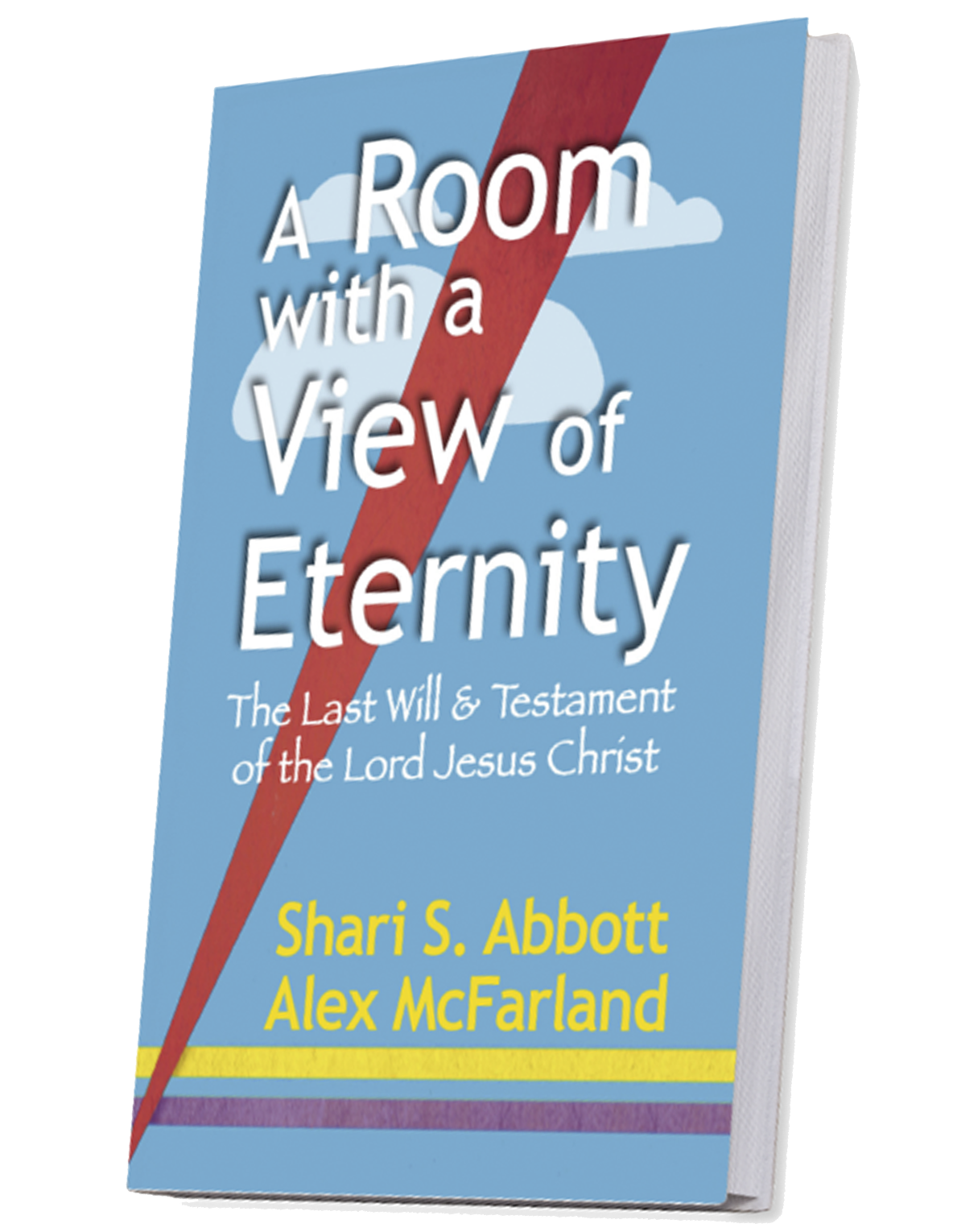 A Room with a View of Eternity—The Last Will & Testament of Jesus Christ Take a seat at the Master's table. Learn about the riches He gives to all who are His. This book will bless and encourage you, give you hope, and help you live in the joy of your salvation and the riches of Christ that are yours.
A Room with a View of Eternity—The Last Will & Testament of Jesus Christ Take a seat at the Master's table. Learn about the riches He gives to all who are His. This book will bless and encourage you, give you hope, and help you live in the joy of your salvation and the riches of Christ that are yours.

The Top Ten Got Questions? in 2023
- The Meaning of NUMBERS in the Bible?
- Was Jesus CRUCIFIED on Wednesday, Thursday, or Friday?
- How was Jesus Like a Worm? What’s the CRIMSON (OR SCARLET) WORM in Psalm 22?
- How are the Shepherd’s ROD and STAFF Different?
- How long did JOB SUFFER?
- What is the Significance of the Wise Men's THREE GIFTS? And were they kings?
- Did The Wise Men Arrive 12 DAYS AFTER JESUS’ BIRTH? Or Was It Much Later?
- Jesus’ Last Days TIMELINE: the Cross and the Resurrection
- The Meaning of COLORS in the Bible?
- Did Jesus Fight Satan to Take Back the KEYS of Death and Hell?
There is much to be learned from those who have gone before us in the faith. Check out our Cloud of Witnesses category that features the words of departed saints who are now with the Lord in glory. Their words equip and encourage us even to this day. Take a few minutes to hear...
- ONLY ONE LIFE, Twill Soon Be Past – by C.T. Studd (1860 – 1931)
- “The Love of God is Greater Far” by Frederick M. Lehman (1917)
- Prayers from Billy Graham
- Who Was Robert Robinson? What’s the Story Behind “Come Thou Fount”
- “Immanuel” — A Poem by Charles Spurgeon (1834-1892)
- Who Am I? A Poem by Deitrich Bonhoeffer (1905-1945)
- Understanding the Everlasting Arms of God, by J.R. Miller (1840–1912)
- 24 Reasons Why I Love America, by John Wayne (1907-1979)
- Give Me Perpetual Broken-heartedness (from The Valley of Vision)
- Abide with Me, by James Smith, 1859
This remains one of our most popular pages viewed.![]()

TOP TEN Videos from Reasons for Hope* Jesus
- Memorial Day BAGPIPES TRIBUTE: Amazing Grace
- RISE AND SHINE and Give God the Glory, Glory!
- WERE YOU THERE When They Crucified My Lord?
- PAUL HARVEY: THE BIRDCAGE
- PRESIDENT RONALD REAGAN: A SOLDIER'S PLEDGE
- Hark! the Herald Angels Sing -- CHARLIE BROWN Christmas
- JOHN WAYNE ~ WHY I LOVE AMERICA
- Jimmy Stewart - Nativity Scene Prayer: Mr. Krueger's Christmas
- THE LEGEND OF THE CANDY CANE - A Christmas Story to Share
- Not by Might, Not by Power, But BY MY SPIRIT says the Lord (Zechariah 4:6)
*****************







